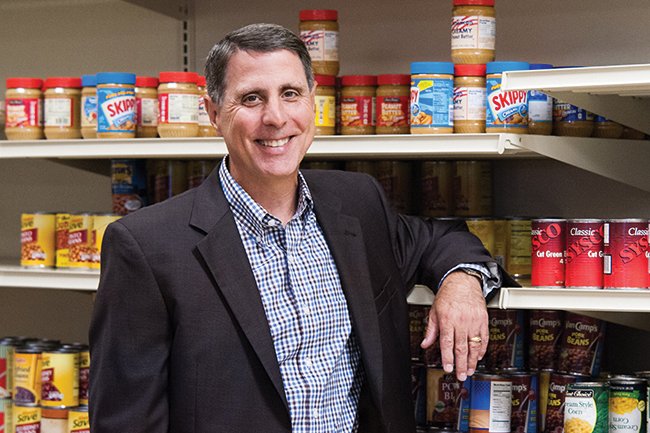by Ken Williams
When Jared walked into our emergency assistance center, we were his last choice.
Unemployed, with only a meager amount of money, Jared had run out of food. He had nowhere else to turn. The emotional and difficult decision he made to ask for help was only outweighed by his physical need for food and shelter.
His eyes were down-turned, his voice lowered and his shoulders slumped — all physical symptoms of a person whose circumstances seem to have robbed him of his self-esteem.
Pope Francis once addressed a crowd, stating: “It is certainly necessary to give bread to the hungry — this is an act of justice. But there is also a deeper hunger . . . the hunger for dignity.”
Human dignity is the innate right to be valued and respected. It’s not something that’s earned or acquired. It’s the right of everyone — regardless of race, religion, ethnicity, sexual preference, IQ score or socioeconomic status. Everyone. Period.
At Catholic Charities of Northeast Kansas, we understand the importance of acknowledging the dignity of those we serve. Recognizing a person’s intrinsic worth doesn’t have to be a grandiose gesture.
We gave Jared food that day to nourish his body. But we didn’t just hand him a bag of food and escort him to the door — although that in itself would still be considered a corporal work of mercy.
Instead, Jared shopped. By pushing a grocery cart and selecting his own items from the shelves, Jared was able to maintain his personal autonomy. Acknowledging his ability to make his own choices is a small way of bringing dignity to an experience most of us can’t imagine.
Jared’s case manager listened closely to his narrative, looking him in the eye as he spoke. Jared’s despair stemmed from unemployment. His difficulty finding consistent work caused him to lose sight of his own inherent value. Catholic social teaching holds that work is dignified and an intrinsic good. Work is more than simply making a living. It’s fundamental to the dignity of the person.
The social teaching of Pope John Paul II affirms that dignified work not only makes adequate housing, food and medical care possible, but also fosters positive participation in society.
Utilizing our employment support resources, Jared’s case manager helped him obtain meaningful work. More than earning a wage, Jared’s sense of self-worth was restored. He has taken the next step toward self-sufficiency.
At Catholic Charities, we believe that one’s circumstance does not define their God-given dignity. We all know a Jared. Perhaps, at some point, we have even been Jared.
Lent is a perfect time to remind ourselves that Jesus died for us all. Therefore, we all have equal value in his eyes, regardless of our situation.



